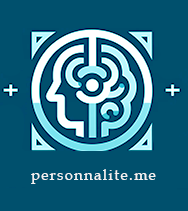What Is Your Empathy Level?
Empathy Test
Empathy is a distinctly human ability that allows you to feel someone else's emotions. If you've felt chills rise the last time you watched James Bond leap from the top of a building, that's called empathy - but it's obviously much broader than that.
Empathy is an essential trait in our relationship with others, and numerous studies have been conducted to understand it. Dr. Marc Davis (Eastern Illinois University) skillfully designed tests that measure empathy. His results - published in the Journal of Personality - show important implications for understanding social development. The following test is based on his work.
-
In an emergency, I become emotional.
-
Even when I'm almost sure I'm right, I take the time to listen to others' arguments.
-
I deeply identify with characters in tearjerker dramas.
-
When I'm with a depressed person, I feel uncomfortable and have trouble speaking.
-
I feel uncomfortable when someone I know talks to me about personal problems.
-
When a disagreement with someone escalates, I can't confront them in the moment.
-
Others tell me I'm a softie (susceptible to love; give my heart easily; fall in love easily).
-
During the day I daydream about things (good or bad) that could happen to me.
-
The true answer to most questions is never clear-cut but rather nuanced.
-
I feel sad when I see a lonely stranger in a group.
-
You scored points
Low Empathy
 Your empathy threshold is low. You find it difficult to identify with others and don't know how to feel concerned about their feelings unless you've experienced the same thing.
Your empathy threshold is low. You find it difficult to identify with others and don't know how to feel concerned about their feelings unless you've experienced the same thing.Explanation Here are the 4 main dimensions of empathy: 1. Imagination and reactions to fictional characters. 2. Concern for others. Empathetic people willingly share the feelings of those who suffer. 3. Perspective-taking. Even when they may disagree, empathetic people are flexible enough to welcome others' points of view. 4. Distress. Empathetic people are generally sensitive and tend to express strong emotions in difficult situations.
-
You scored points
Moderate Empathy
 You have a moderate level of empathy. You often need more time to understand the state of the person facing you.
You have a moderate level of empathy. You often need more time to understand the state of the person facing you.Explanation Here are the 4 main dimensions of empathy: 1. Imagination and reactions to fictional characters. 2. Concern for others. Empathetic people willingly share the feelings of those who suffer. 3. Perspective-taking. Even when they may disagree, empathetic people are flexible enough to welcome others' points of view. 4. Distress. Empathetic people are generally sensitive and tend to express strong emotions in difficult situations.
-
You scored points
HIGHLY EMPATHETIC!
 Your empathy level is high. You are able to understand what others feel and offer them your support with great consideration.
Your empathy level is high. You are able to understand what others feel and offer them your support with great consideration.Explanation Here are the 4 main dimensions of empathy: 1. Imagination and reactions to fictional characters. 2. Concern for others. Empathetic people willingly share the feelings of those who suffer. 3. Perspective-taking. Even when they may disagree, empathetic people are flexible enough to welcome others' points of view. 4. Distress. Empathetic people are generally sensitive and tend to express strong emotions in difficult situations.
